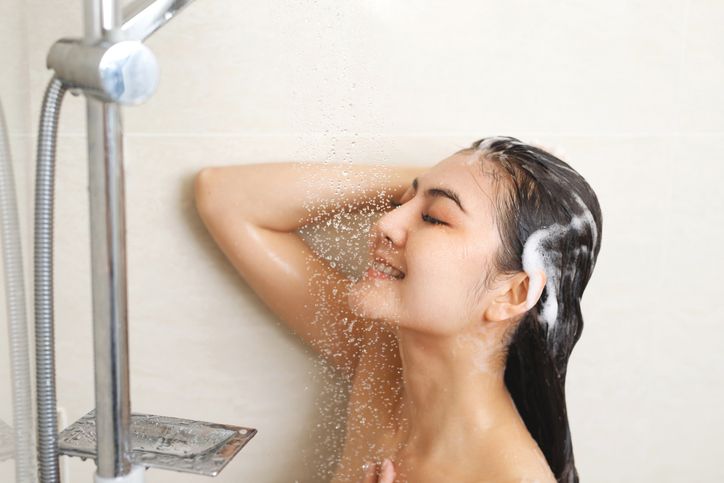
- Home
- Trend
- Weight Loss Strategies
- Acne Tips
- Hair Health Information
- Blemish Removal Tips
- Acne Scar Removal Tips
- Muscle Building Techniques
- Intimate Care Tips
- Postpartum Intimate Care
- Eye Bags Wiki
- Tips for Face Slimming
- Secret of Permanent Hair Removal
- Breast Enlargement Tips
- Cure to Snoring
- Marionette Lines
- Skin-Tightening Secrets
Hair loss. It's a dreaded phrase that can send shivers down anyone's spine. And often, dandruff gets blamed as the culprit. But is there any truth to this connection, or is it just another hair loss myth? Let's delve into the world of itchy scalps and falling strands to separate fact from fiction.
Dandruff and Its Persistent Discomfort: But Is It Why You Get Thinning Hair?

Dandruff is a prevalent scalp condition marked by the presence of white or yellow flakes. The condition can arise from two primary causes:
1. Dry Scalp
Insufficient moisture in the scalp can lead to dryness and irritation, resulting in flaking. When the scalp is dry, it sheds dead skin cells more rapidly than normal, causing visible flakes.
This is the most common cause of dandruff and can often be managed by maintaining proper scalp hydration and using gentle hair care products that do not strip away natural oils.
2. Seborrheic Dermatitis
This chronic skin condition presents with a red, itchy scalp accompanied by greasy, yellowish flakes. Unlike simple dry scalp, seborrheic dermatitis is more severe and can extend to other oil-prone areas of the body, such as the eyebrows, sides of the nose, and chest.
The exact cause is not fully understood, but it is believed to be related to an overgrowth of yeast that lives on the skin and a heightened immune response. This condition often requires medicated shampoos or treatments prescribed by a healthcare professional to manage symptoms effectively.
While dandruff can be bothersome and affect one's self-esteem, it is crucial to differentiate it from other scalp conditions like atopic dermatitis (eczema) or psoriasis. Eczema typically manifests as inflamed, itchy patches that may ooze and crust over, while psoriasis is characterised by thick, silvery scales and red patches that can be painful. These conditions usually exhibit more severe symptoms and necessitate specific treatment methodologies beyond typical dandruff management.
The Truth About Hair Loss Causes
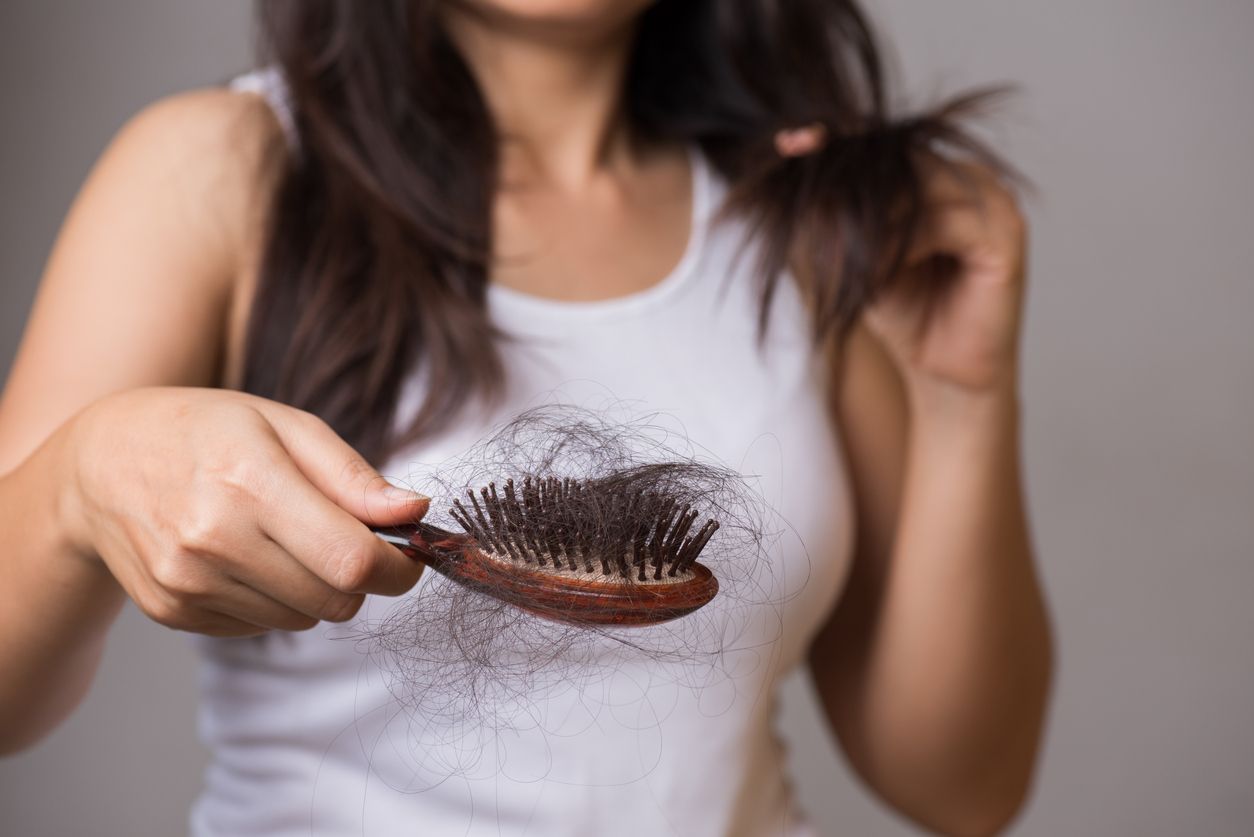
The good news is that dandruff itself doesn't directly cause hair loss. Hair loss is a complex issue with several contributing factors, including:
• Genetics: Androgenetic alopecia, also known as male or female pattern baldness, is the most common type of hair loss and has a strong genetic component. Individuals with a family history of this condition are more likely to experience it themselves.
• Hormonal Changes: Hormones, particularly androgens, play a significant role in hair health. In both men and women, these hormones can lead to the miniaturisation of hair follicles and a shortened hair growth phase, resulting in hair thinning and eventual loss.
• Medical Conditions: Certain medical conditions can disrupt the hair growth cycle and cause hair loss. These include thyroid disorders, autoimmune diseases like alopecia areata, and polycystic ovary syndrome (PCOS). Each of these conditions can interfere with the normal function of hair follicles, leading to hair loss.
• Medications: Some medications have hair loss as a side effect. Chemotherapy drugs, which target rapidly dividing cancer cells, can also affect hair follicles. Other medications, such as those for blood pressure, can also contribute to hair loss.
• Stress: Severe or chronic stress can trigger a temporary form of hair loss called telogen effluvium. This condition pushes hair follicles into the resting phase, causing hair to fall out more easily.
• Nutritional Deficiencies: Adequate nutrition is crucial for healthy hair. Deficiencies in essential nutrients like iron, vitamin D, and others can negatively impact hair health and contribute to hair loss. Ensuring a balanced diet is essential for maintaining robust hair growth.
免費體驗
F8 Hair Regrowth Treatment
1 Minute Self-Registration
Date should not be before minimal date
The Itch Factor: Dandruff Related Hair Loss

Excessive Scratching and Inflamed Scalp: The Hidden Dangers of Untreated Dandruff
Dandruff, while often viewed as a minor nuisance, can have more significant implications when left untreated. Although it's not the primary cause of hair loss, dandruff can indirectly contribute to hair problems in several ways, primarily through excessive scratching and scalp inflammation.
Symptoms of Untreated Dandruff
1. Intense Itching: One of the hallmark symptoms of dandruff is persistent itching of the scalp. As dandruff worsens, the itching can become more intense and frequent, leading to discomfort and irritation.
2. Visible Flakes: Dandruff is characterised by the presence of white or yellowish flakes on the scalp and hair. These flakes can be noticeable on dark clothing, particularly when the scalp is irritated and flaking is excessive.
3. Dry Scalp: In addition to flaking, dandruff can also cause dryness of the scalp. This can lead to tightness and a feeling of dryness, exacerbating the urge to scratch.
4. Redness and Irritation: With chronic dandruff, the scalp can become red, inflamed, and sensitive to touch. This inflammation is often accompanied by a feeling of warmth or tenderness in the affected areas.
What Can Happen If I Get Severe Dandruff?
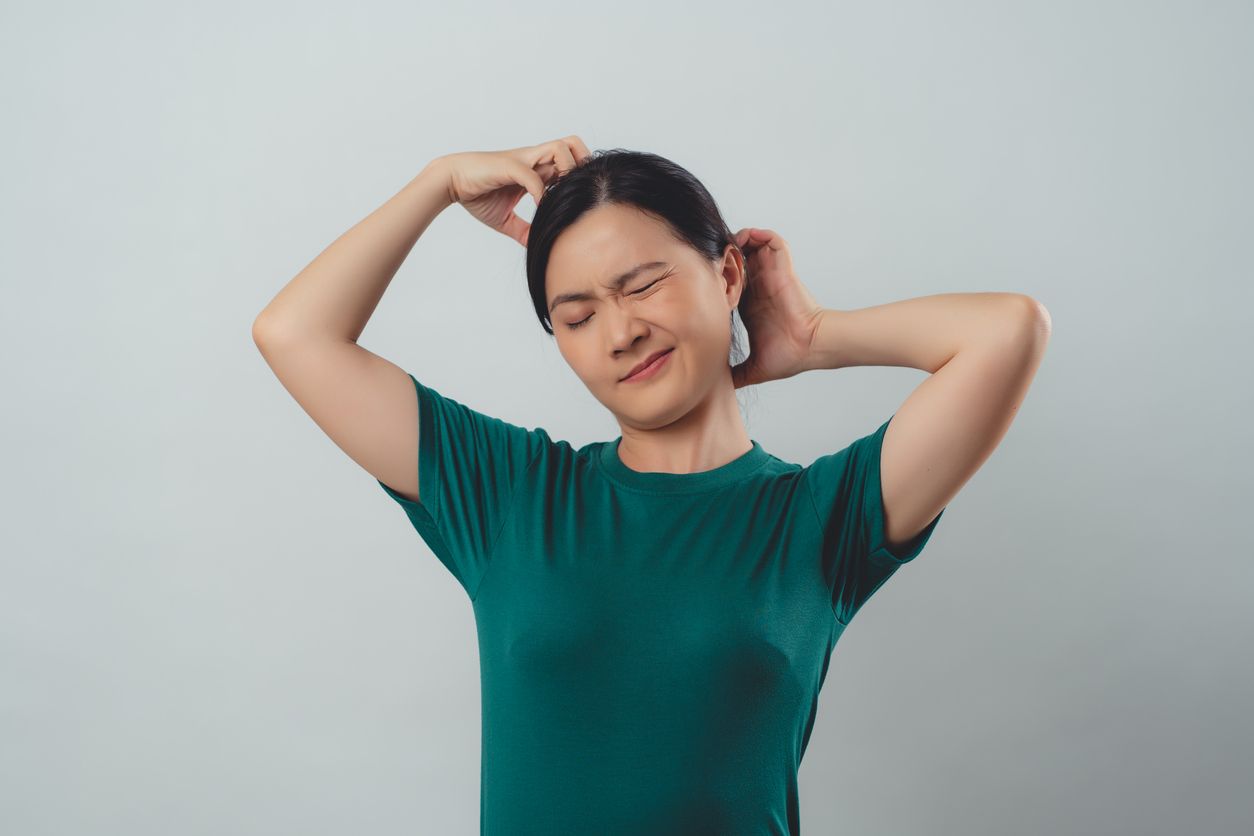
Leaving dandruff untreated can ultimately damage your scalp and hair. Excessive scratching and inflammation can lead to these problems:
1. Hair Breakage
Perhaps the most immediate impact of excessive scratching is hair breakage. Constant friction and pressure on the hair follicles weaken them, leading to increased breakage and the appearance of shorter, damaged hair strands.
2. Weakened Hair Follicles
Prolonged scratching and inflammation can damage the hair follicles themselves. This weakening of the follicles can disrupt the hair growth cycle, leading to thinner, weaker hair over time.
3. Hair Loss
While dandruff alone doesn't cause hair loss, the combination of factors such as excessive scratching, inflammation, and weakened follicles can contribute to increased hair shedding and a gradual loss of hair density.
4. Scalp Health Issues
Inflamed and irritated scalp conditions can also pave the way for other scalp health issues, such as bacterial or fungal infections. These infections can further exacerbate dandruff and hair loss problems if left untreated.
The Importance of Treatment
Addressing dandruff and its associated symptoms early is crucial to prevent these potential consequences. Effective dandruff treatment not only controls flaking and itching but also helps maintain a healthy scalp environment. This, in turn, supports optimal hair growth and reduces the risk of complications like hair breakage and thinning.
If dandruff symptoms persist or worsen despite home remedies or over-the-counter treatments, it's essential to consult a healthcare professional or dermatologist. They can provide a more targeted treatment plan tailored to your specific scalp and hair needs, ensuring long-term scalp health and hair vitality.
Interventions to Deal with Both Dandruff and Hair Loss
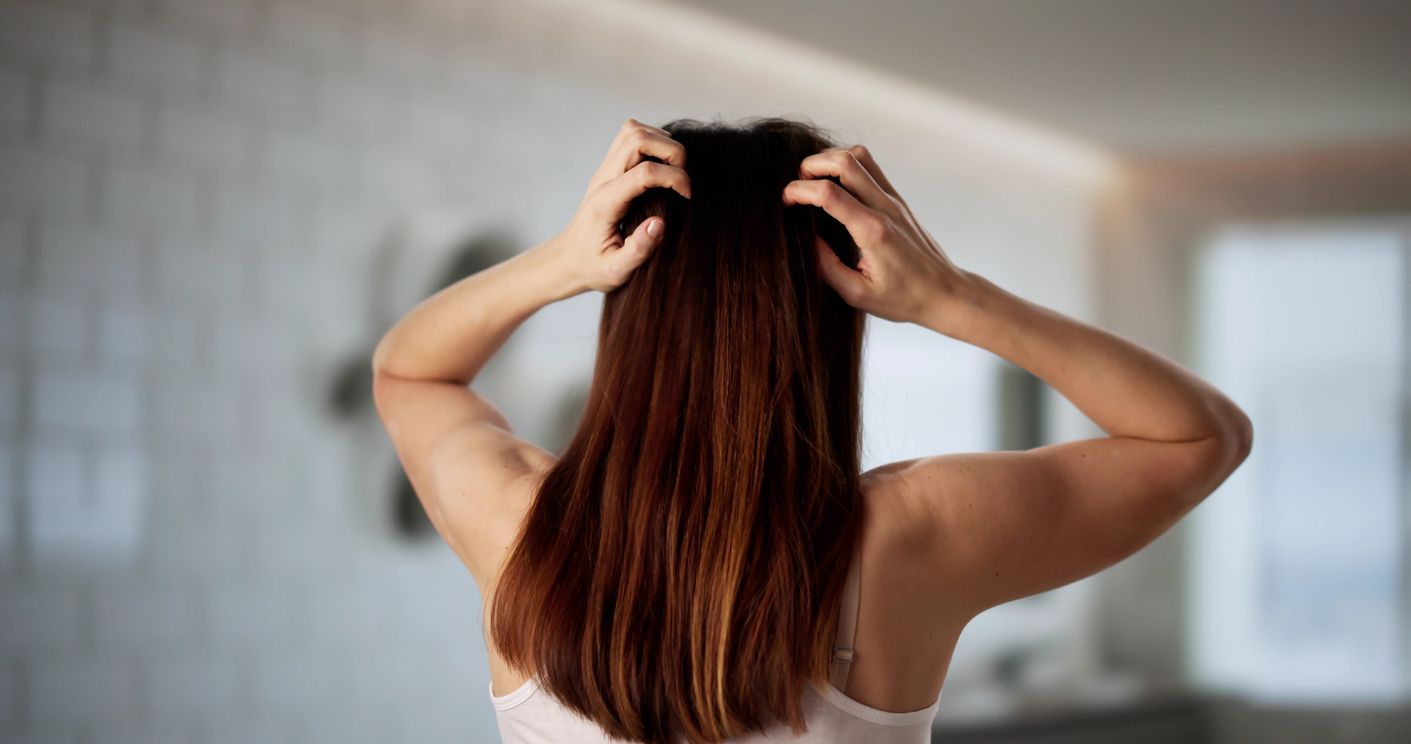
Effectively managing dandruff involves understanding its underlying cause and applying appropriate treatment methods. Simple dandruff, which is often due to a dry scalp or mild irritation, can frequently be controlled with over-the-counter dandruff shampoos. These shampoos contain active ingredients specifically designed to target the yeast that contributes to dandruff and to reduce flaking and irritation. Key active ingredients include:
1. Zinc Pyrithione
This ingredient has antifungal and antibacterial properties, which help to reduce the yeast on the scalp that can cause dandruff. It also helps to soothe irritation and reduce flaking.
2. Selenium Sulphide
Selenium sulphide works by slowing down the overproduction of skin cells and reducing the growth of yeast on the scalp. It can help to alleviate symptoms of dandruff such as flaking and itching.
3. Ketoconazole
Known for its potent antifungal properties, ketoconazole is effective in treating dandruff caused by fungal overgrowth. It is often found in both over-the-counter and prescription dandruff shampoos.
For individuals suffering from seborrheic dermatitis, a more targeted approach may be necessary. This condition is more persistent and severe than simple dandruff and often requires prescription-strength treatments. These treatments can include:
1. Medicated Shampoos
Shampoos containing higher concentrations of active ingredients like ketoconazole or ciclopirox can be prescribed by dermatologists. These are designed to manage more severe symptoms and control yeast overgrowth effectively.
2. Topical Steroids
In cases where inflammation and itching are particularly severe, topical corticosteroids may be prescribed. These help to reduce inflammation and provide relief from itching.
3. Regular Dermatological Care
Ongoing management and regular check-ups with a dermatologist are crucial for individuals with seborrheic dermatitis. Dermatologists can monitor the condition, adjust treatments as necessary, and provide advice on managing symptoms.
免費體驗
F8 Hair Regrowth Treatment
1 Minute Self-Registration
Date should not be before minimal date
Fight Back Against Weak Scalp: Building a Hair Care Routine for Strength
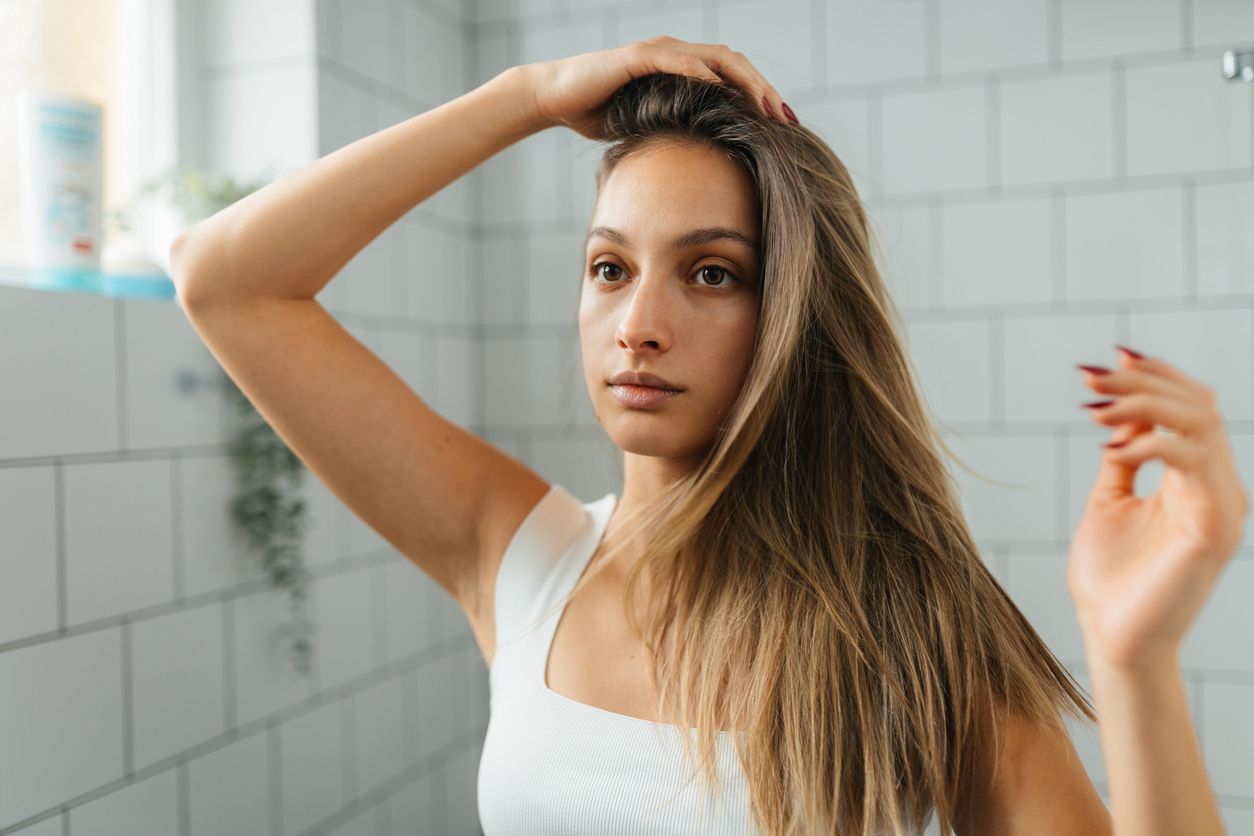
Have you ever noticed your scalp feeling itchy and irritated? This could be a sign of a weak scalp, which can lead to a number of hair woes, including dandruff and even hair loss. But don't despair! By understanding the consequences of an untreated weak scalp and building a strong hair care routine, you can fight back and achieve a healthy scalp that promotes beautiful, strong hair.
The Dangers of Ignoring Dandruff
Dandruff might seem like a minor annoyance, but leaving it untreated can have serious consequences for your scalp and hair. Here's how:
• Hair Follicle Issues: Severe dandruff can lead to excessive scratching. This constant friction irritates and damages the hair follicles, the tiny pockets in your scalp responsible for hair growth. Weakened follicles struggle to produce healthy hair, potentially leading to increased hair loss.
• Inflamed Scalp: Chronic dandruff creates an inflamed environment on your scalp. This inflammation disrupts the natural hair growth cycle, making it harder for your hair to grow and thrive.
Building a Comprehensive Scalp Care Routine for Healthy Hair
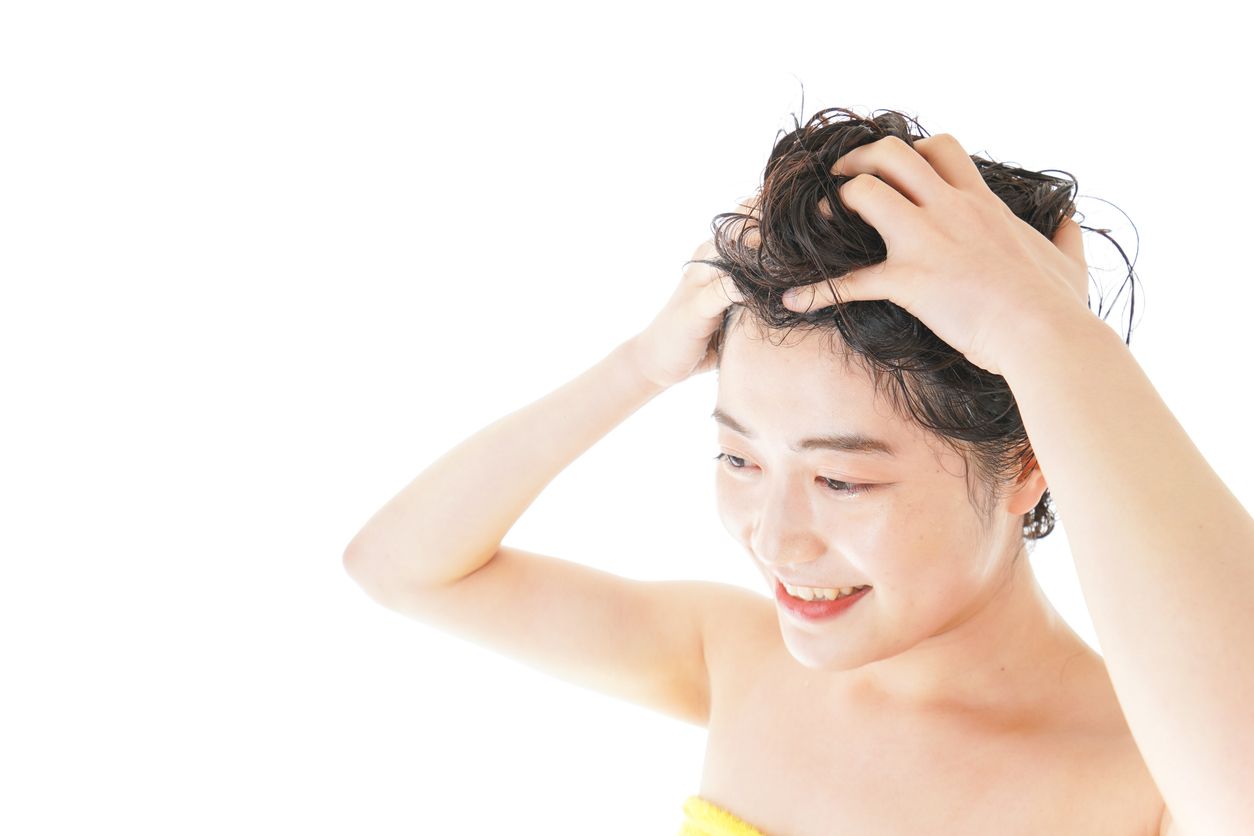
In addition to using a medicated shampoo recommended by your doctor, a comprehensive scalp care routine can significantly improve your dandruff and overall hair health:
1. Proper Hygiene: Wash your hair regularly with a gentle, dandruff shampoo recommended by a dermatologist. This helps remove flakes, excess oil, and buildup on the scalp that can exacerbate dandruff. Look for shampoos containing ingredients like salicylic acid, zinc pyrithione, or ketoconazole, which are effective against dandruff.
2. Scalp Moisturization: Dandruff can sometimes be caused by a dry scalp. Using proper hair products like a conditioner specifically formulated for dandruff or a scalp moisturiser can help restore moisture balance and soothe dryness, reducing itching and flaking.
3. Avoiding Irritants: Harsh chemicals or fragrances in hair care products can irritate your scalp and worsen dandruff symptoms. Opt for gentle, fragrance-free shampoos and conditioners designed for sensitive scalps.
4. Healthy Diet: A balanced diet rich in essential vitamins and minerals like iron, vitamin D, and omega-3 fatty acids nourishes your hair follicles and promotes overall scalp health. Deficiencies in these nutrients can contribute to hair loss and scalp problems.
F8 Hair Regrowth Treatment: For When Hair Loss Occurs
If you're already experiencing hair loss due to dandruff or other factors, Perfect Medical's F8 Hair Regrowth Treatment can be a powerful solution. This non-invasive and painless hair loss treatment uses low-energy laser beams to:
• Stimulate Hair Follicles: The laser beams penetrate the scalp, reaching the hair follicles and stimulating blood circulation. This improved blood flow nourishes the follicles and promotes hair growth.
• Prevent Hair Loss: By promoting a healthy scalp environment, F8 helps prevent further hair loss and strengthen existing hair.
Learn More About F8 Hair Regrowth Treatment:
The blog post continues with a detailed description of the F8 Hair Regrowth Treatment, including:
• Treatment Technology: Explains the three-step process of preventing hair loss, nourishing hair follicles, and reviving hair growth.
• Target Symptoms: Lists various hair loss conditions that F8 can effectively treat, including receding hairline, male and female pattern baldness, thinning hair, and patchy hair loss.
• Suitable Users: Emphasises that F8 is safe and effective for anyone experiencing hair loss or thinning hair.
• Safety and Advantages: Highlights the non-invasive, painless nature of the treatment, along with its ability to promote hair growth and strengthen the scalp.
By following a comprehensive scalp care routine and addressing the root cause of dandruff, you can significantly improve your scalp health and prevent hair loss. If you're already experiencing hair loss, the F8 Hair Regrowth Treatment offers a safe and effective solution to stimulate hair growth and achieve a thicker, healthier head of hair.
免費體驗
F8 Hair Regrowth Treatment
1 Minute Self-Registration
Date should not be before minimal date
The Bottom Line: Fix Dandruff Before You Start Scratching Hard
Dandruff might not be the direct villain in your hair loss story, but it can play a supporting role. By addressing dandruff and maintaining a healthy scalp environment, you're creating the foundation for strong, healthy hair growth.
免費體驗
F8 Hair Regrowth Treatment
1 Minute Self-Registration
Date should not be before minimal date
FAQ

1. What are the common symptoms of scalp psoriasis?
Scalp psoriasis often presents with red patches on the scalp that are covered with silvery or white scales. It can cause itching, discomfort, and in severe cases, may lead to hair loss. Some individuals may also experience inflammation and tenderness in the affected areas.
2. How can I effectively manage flaky skin on my scalp?
Managing flaky skin on the scalp involves using specialised medicated shampoos that contain active ingredients such as coal tar, salicylic acid, or ketoconazole. These ingredients help to exfoliate dead skin cells, reduce flakiness, and alleviate itching. Consistent use of these shampoos, along with gentle scalp massage and regular moisturization, can significantly improve scalp health.
3. Can hair follicle damage lead to hair loss, and what signs should I watch for?
Hair follicle damage, if left untreated, can contribute to hair loss. Signs to watch for include increased shedding of hair, thinning of hair strands, visible changes in the scalp's texture or colour, redness, inflammation, or tenderness around hair follicles. It's important to address these signs promptly to prevent further damage and preserve hair health.
4. What are some recommended treatments for dry skin on the scalp, and how effective are they in reducing flakiness?
Recommended treatments for dry skin on the scalp include using moisturising shampoos that are free from harsh chemicals, applying scalp oils or serums containing ingredients like jojoba oil, argan oil, or coconut oil, and avoiding excessive heat when washing hair. These treatments help to restore moisture balance to the scalp, reduce flakiness, and improve overall scalp health.
5. Are medicated shampoos effective in treating scalp conditions like psoriasis and dandruff, and what ingredients should I look for?
Yes, medicated shampoos are effective in treating scalp conditions such as psoriasis and dandruff. Ingredients to look for in these shampoos include coal tar, salicylic acid, zinc pyrithione, ketoconazole, or selenium sulphide. These ingredients help to control symptoms such as flaking, itching, and inflammation, and promote a healthier scalp environment. Regular use of medicated shampoos as directed by a healthcare professional can lead to significant improvement in scalp conditions.





